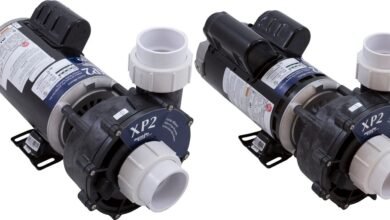
In the world of online shopping, two giants dominate the market: Alibaba and Amazon. These platforms have revolutionized the way consumers shop, offering millions of products at competitive prices. But when it comes to finding the best deals, which platform truly offers the better value for your money? In this article, we’ll dive into the Alibaba vs. Amazon price battle, comparing the key differences, pros and cons, and which platform provides the best savings for consumers like you.
What is Alibaba?
Alibaba Group is a global leader in e-commerce, headquartered in China. Founded in 1999 by Jack Ma, it started as a business-to-business (B2B) platform, connecting manufacturers and suppliers to buyers worldwide. Over time, Alibaba expanded to consumer-focused platforms like Ali Express, which allows individual consumers to purchase goods directly from suppliers, mainly in China. Alibaba offers everything from electronics and clothing to home goods and industrial equipment at wholesale prices.
While Alibaba primarily caters to bulk buyers and businesses, Ali Express has become the go-to marketplace for international consumers looking to purchase individual products at deeply discounted rates.
What is Amazon?
On the other side of the globe, Amazon is the largest online retailer in the world. Founded in 1994 by Jeff Bezos, Amazon initially sold books before branching out into nearly every product category imaginable, including electronics, fashion, home goods, and food. Amazon operates primarily on a business-to-consumer (B2C) model, selling products directly to consumers, as well as hosting third-party sellers on its platform. Amazon Prime offers exclusive perks such as free shipping, early access to deals, and streaming services.
Amazon’s massive network of distribution centers ensures quick delivery times, which has become a major selling point for the platform.
Price Comparison: Alibaba vs. Amazon
When it comes to price, the battle between Alibaba and Amazon is fierce. Both platforms offer highly competitive pricing, but the best deals often depend on the type of product you’re shopping for, your location, and how quickly you need it.
Product Availability and Pricing Models
- Alibaba:
Alibaba’s pricing structure is mostly geared toward bulk purchases. If you’re looking for wholesale prices on electronics, clothing, or accessories, you’ll find much lower prices on Alibaba than Amazon. However, Alibaba’s minimum order quantities (MOQ) can make it less ideal for individuals looking for single-item purchases. For bulk buyers or businesses looking to stock up on inventory, Alibaba offers unbeatable rates. Additionally, Alibaba suppliers often offer negotiable prices, meaning you can haggle and secure an even better deal. - Amazon:
While Amazon offers competitive pricing for both individual consumers and businesses, its prices tend to be higher than those on Alibaba—especially for popular brands and well-known products. Amazon’s convenience and fast delivery (through services like Amazon Prime) may justify the slightly higher prices, but for bulk buyers or those looking to save on non-brand-name products, Alibaba often wins.
Shipping and Delivery Costs
- Alibaba:
One of the most significant downsides of shopping on Alibaba is the long shipping times. Many Alibaba sellers are based in China, which means products can take weeks or even months to arrive, depending on the shipping method. Additionally, shipping costs can add up, especially if you are purchasing smaller quantities or if the supplier offers expensive courier services. - Amazon:
Amazon’s shipping and delivery services are fast and reliable, especially for Prime members who enjoy free two-day shipping (or even same-day delivery in some areas). For individual buyers, Amazon’s efficient fulfillment network is a huge advantage, especially when compared to Alibaba’s extended shipping times. However, Amazon’s shipping costs can sometimes be high for non-Prime members, and international shipping from Amazon to certain countries can also be expensive.
Customs and Import Duties
- Alibaba:
When purchasing from Alibaba, particularly through AliExpress, international buyers should be aware of customs fees and import duties. Since most Alibaba suppliers are based in China, customs fees can add an extra layer of cost, depending on the destination country. These fees are typically outside of the control of Alibaba, and they can significantly impact the overall price of your order. - Amazon:
For most Amazon customers, customs duties and import fees are handled transparently, with upfront charges included in the total purchase price. However, for international buyers, the overall price can be higher compared to purchasing from local sellers or Alibaba, especially when factoring in shipping and duties.
Product Quality and Selection
- Alibaba:
Since Alibaba is a marketplace for manufacturers and wholesalers, the quality of products can vary widely. Some suppliers offer high-quality goods, while others may provide products of inferior quality. It’s important to check supplier ratings, reviews, and product descriptions carefully before making a purchase on Alibaba. Additionally, many products on Alibaba are no-name or generic brands, which can mean significant savings but potentially lower product quality. - Amazon:
Amazon tends to have stricter standards for its sellers, and product quality is generally more consistent. Amazon’s huge selection includes well-known brands, which can give customers peace of mind regarding quality. However, for non-branded products, there are still variations in quality, so reading reviews is crucial before purchasing.
Customer Service and Support
- Alibaba:
One of the challenges of shopping on Alibaba is the lack of robust customer support for individual consumers. While the platform does offer dispute resolution through its Trade Assurance program, navigating returns, exchanges, or refunds can be more complicated than on Amazon. Since many suppliers are based overseas, communication with sellers may not always be seamless. - Amazon:
Amazon shines when it comes to customer service. The company offers 24/7 support and has a streamlined process for handling returns, refunds, and exchanges. Amazon’s A-to-z Guarantee provides additional protection for buyers, which helps build trust in the platform.
Which Platform Should You Choose?
The decision between Alibaba vs. Amazon depends largely on your needs as a shopper. Here’s a breakdown of when each platform might be the better choice:
Choose Alibaba If:
- You are purchasing in bulk and looking for wholesale pricing.
- You don’t mind waiting for long shipping times and are willing to pay for customs fees and import duties.
- You are looking for no-name or generic products at lower prices.
- You’re comfortable researching and vetting suppliers on your own.
Choose Amazon If:
- You need products quickly and prefer fast shipping and reliable delivery.
- You want guaranteed product quality and easier returns or exchanges.
- You prefer to shop from established brands or need specific, branded items.
- You value excellent customer service and support throughout your shopping experience.
Conclusion: The Price Battle You Can’t Miss
In the Alibaba vs. Amazon price battle, each platform offers distinct advantages depending on your shopping preferences. Alibaba can be the clear winner when it comes to bulk buying, low prices, and a wider selection of generic goods. However, Amazon takes the lead with faster shipping, consistent product quality, and better customer support for individual buyers.
Ultimately, the best platform for you comes down to the type of product you’re looking for, how quickly you need it, and how much you’re willing to invest in shipping and potential import fees. If you’re looking for bargain deals on bulk items and aren’t in a rush, Alibaba might just be your best bet. But if convenience, fast delivery, and customer protection are your priorities, Amazon could be the better choice.
By understanding the key differences in pricing, product quality, and shipping between Alibaba and Amazon, you can make a more informed decision and take advantage of the best deals available!


